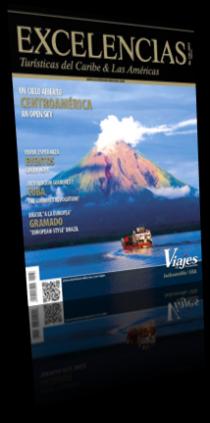- Green Hope.
Environmental matters, which are gaining increasing importance around the world,
are not alien to the MICE industry
The green factor is playing a leading role in new constructions, as well as large glazed surfaces that contribute to reduce power consumption due to their light potential. Solar panels have become commonplace on roofs, just like those architectural designs conceived to avoid any environmental damage, neither with their content nor their shape, thus standing out as friendly buildings that melt into the landscape.
Today’s world is aware of the irreparable damage caused by certain actions on the planet, so it’s vital to proceed according to individual and general needs. Many of the measures that are being presently implemented by companies and industries are also acclaimed by hotels, convention centers and fairgrounds, so when these actions are carried out, they contribute to improve the interaction with nature.
Global associations contribute to the sustainable development by encouraging, sharing and fostering the implementation of sustainability-oriented practices in every aspect. Likewise, they deal with the direction and organization of events from an environmental, economic and social approach.
By means of its activities around the globe, the MICE industry supports the three pillars of sustainable environmental development, by taking actions that target the improvement of energy use and management of resources and wastes. From the economic point of view, the industry backs up the development of international trade in all sectors and contributes to the rekindling of the local and national economy. As for the social perspective, it tells the sector and community about the importance of sustainable development, education and training when it comes to implementing viable practices.
ANOTHER ARGUMENT TO BEAR IN MIND
Just like the example of the old pendulum, things get to a certain point before they strike a logical balance between the ideal and the real. Over the years, the “green” movement has grown and, while most of the people have taken reasonable levels of environmental responsibility, there are some who want to take the agenda one notch higher.
In the case of the MICE industry, the contradictory fact is that many of us shed more energy on the “green” cause rather than the one devoted to arguments on the value of meetings as such, which is ironic as it might have a dramatic impact on the collective future.
Many members of this industry have become obsessed in their promotion of the green agenda, so we find a significant difference between the kind of facilities and programs to be offered and what most customers look for —sincerely speaking— what they are willing to pay for. This is kind of positive to a large degree, since it shows that we’re establishing guidelines in a matter that concerns everybody.
The problem is that, in several cases, this change has taken place at the expense of developing our own arguments on the reason why face-to-face meetings are an important element in global economy and professional and cultural development —a fact that needs to be balanced with the unavoidable impact of travel required to attend those meetings.
The travel factor will never be lost, no matter how green our events and facilities become. So, perhaps it’s time to admit that the only meeting that has no environmental impact is the one that is not held —not exactly a good business development strategy—, instead of focusing our efforts in the debate on the reason why a small impact is a small price to be paid for these meetings and their contribution to the global community.
This doesn’t mean that sustainability is not to be supported —a lot has been done with the existing programs and it’ll be a key element in the near future. But if somebody is to foster the idea of guiding the green cause towards some kind of perspective, that should be us. There is and there will be a lot of people (and lots of interests) promoting the green agenda. Shouldn’t we devote more time to boosting our eco-friendly agendas?
We should be concerned about the fact that, since green arguments have reached the highest point in some places, our industry is the one to suffer. In fact, there is a growing list of powerful organizations asking for significant and well-defined reductions in the MICE industry —music for the ears of those linked to technological alternatives interested in coming up with an excuse for governments and corporations to slash travel-related expenses.
What’s fascinating is the fact that we could have reached this point, at least part of it, by means of our own actions, focused on the eco-friendly agenda with nearly the total exclusion of several issues that should be discussed, such as the value and importance of the events comprised by our industry. It’s not that there are no good arguments.
Does anybody actually think that the world is going to be a better place if we all stay home and communicate over the Internet? Are we truly prepared to continue looking for even more aggressive environmental measures when the unavoidable result is that less people will be able or interested in travelling to meet their colleagues from different spots on the planet? What we know for sure is that the environmental standards are not going to inch back.





























































































































